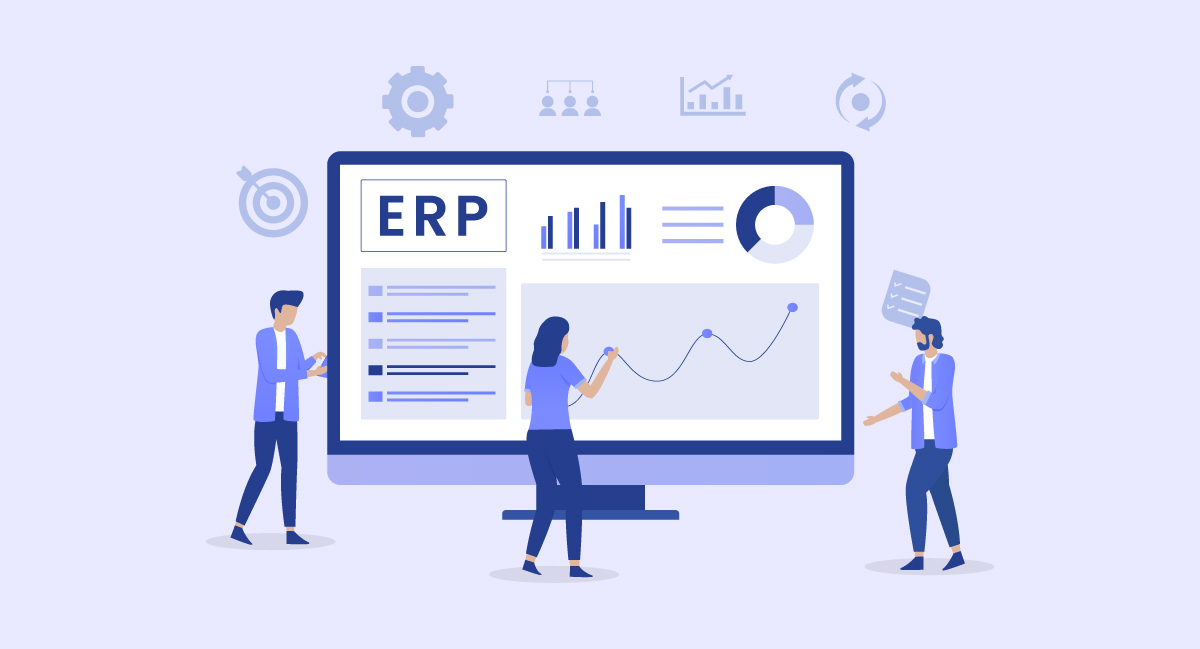Managing many departments effectively can be difficult as companies expand and processes get more complicated. An Enterprise Resource Planning system offers a consistent platform integrating several corporate activities that enable enhanced coordination and decision-making. ERP systems help businesses to improve efficiency, reduce expenses, and simplify processes. Businesses using ERP systems will have a competitive edge in their particular fields as technology develops. Investing in an ERP system builds a strong basis for future expansion and sustainability, not only enhances daily operations.
Improved Compliance and Financial Control
The success of every company depends on good financial management. An enterprise resource planning software combines accounting, invoicing, and budgeting among other financial management tasks into one platform. This integration guarantees accurate, open, and simple accessibility of financial data. With minimal effort involved, companies may analyze spending, check cash flow, and create thorough financial reports.
ERP systems also automate tax computations, financial audits, and reporting procedures that enable businesses to meet regulatory criteria. Reducing hand-manual mistakes and enhancing financial accuracy would help companies keep greater control over their financial situation and guarantee industry compliance.
Improved CRM—customer relationship management
Business success is mostly driven by customer pleasure; hence an ERP system is important for bettering customer relationship management. Integration of CRM features helps companies keep a centralized database of consumer contacts, buying behavior, and service requests.
This helps sales and support personnel to offer personalized and effective customer service. Real-time customer data access allows companies to monitor leads, control sales pipelines, and improve marketing initiatives.
Business Development and Scalability
Management of operations is more difficult as companies grow. Designed to grow with the company, an ERP system allows businesses to add additional capabilities and users as required. An ERP system can handle changes in a company’s size from adding more staff to raising manufacturing capacity without interfering with business processes.
The system offers flexibility for companies to include extra modules such as e-commerce, project management, or human resources such that they may keep running effectively as they expand. ERP systems are a wise investment for long-term corporate success due to their scalability.
Improved HR Optimizing and Workforce Management
Any company depends on competent management of its staff. Human resource management tasks including payroll processing, attendance tracking, performance reviews, and recruiting control are combined under an ERP system. Automated HR systems help companies reduce administrative chores, therefore guaranteeing precise payroll computation and labor law compliance.
ERP-driven HR analytics also enable companies to monitor employee performance; spot workforce trends, and make wise decisions regarding recruiting, training, and performance enhancement. Through better human resource management, businesses can raise employee happiness, lower turnover rates, and raise overall worker effectiveness.
Simplified Workflows and Project Management
Managing several tasks at once can be challenging without a suitable system of organization in place. By using capabilities for work scheduling, resource allocation, budget tracking, and real-time progress monitoring, enterprise resource planning softwarestreamlines project management. Companies can guarantee that initiatives remain on time and under budget while keeping all stakeholders updated.
ERP-driven workflow automation also reduces duplicated manual duties and enables teams to concentrate on strategic activities instead of administrative chores. Businesses can raise general project success rates, fulfill deadlines, and increase output through a well-organized project management system.
Resources Optimization and Cost Savings
Though there may be an initial outlay for an ERP system, the cost reductions make it a wise choice over time. Businesses can drastically reduce running expenses by automating tasks, cutting hand labor, and reducing mistakes.
Furthermore, an ERP system helps to lower software license and maintenance costs. ERP integration increases productivity and efficiency, which translates into better profitability and steady expansion.
Including an ERP system in a company is a strategic action that increases effectiveness, sharpens decision-making, and stimulates expansion. ERP systems provide many advantages that support company performance from improving customer connections and supply chain efficiency to streamlining operations and optimizing financial management.































